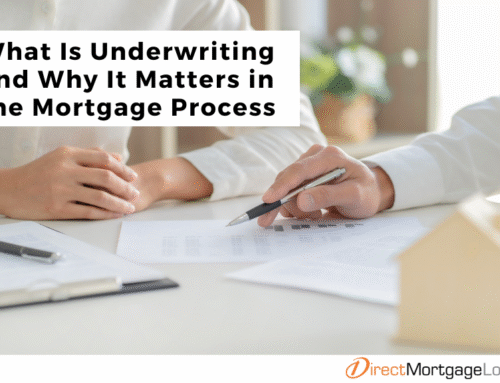Moving out of your parents’ house is one of the most exciting—and sometimes overwhelming—chapters of adulthood. Whether you’re dreaming of renting your first apartment or buying your very own home, there’s a lot to consider. From budgeting and credit building to house hunting and packing boxes, this guide will explain how to move out of your parents’ house with confidence and clarity.
Why Moving Out of Your Parents’ House Is a Big Step
Leaving your parents’ house marks a major life milestone. It’s more than packing up and changing addresses—it’s about stepping into adulthood and taking ownership of your financial and personal freedom. Whether you’re pursuing a new career path, planning to start a family, or simply craving independence, moving out is an empowering decision that sets the foundation for long-term stability and growth.
Signs You’re Ready to Move Out of Your Parents’ House
Wondering how to move out of your parents’ house and whether now is the right time? Here are some clear signs you may be ready:
- You have a steady income that covers more than just your bills: Having consistent income that not only pays for necessities like housing, food, and utilities but also leaves room for savings, emergency funds, and occasional spending shows financial strength. If you can comfortably handle both expected and unexpected costs each month without falling behind, it’s a strong indicator that you’re financially prepared to live independently.
- You’re actively managing your savings and credit: Taking control of your finances by sticking to a budget, setting aside money for an emergency fund, and monitoring your credit score regularly demonstrates that you’re financially responsible. These habits show that you’re planning for the future, not just reacting to the present. If you’re actively working toward improving or maintaining your credit and consistently making smart financial decisions, you’re likely ready to manage the expenses of living on your own.
- You’re eager for privacy and personal space: Feeling the need for personal space and autonomy is a natural part of growing up. If you find yourself craving the ability to set your own schedule, decorate and organize your space the way you want, or simply enjoy quiet time without interruption, it’s a sign that you’re ready to create an environment tailored to your own needs. This desire for independence often reflects emotional maturity and a readiness to take on the responsibilities of living solo.
- You’re financially and emotionally prepared to handle responsibilities: Being truly ready to move out means more than just affording rent—it means consistently managing your bills, grocery shopping, cooking meals, doing laundry, and taking care of day-to-day upkeep that comes with having your own place. Emotionally, you’re ready to handle stress without leaning on your parents for constant support, and you’re capable of making decisions independently. If you feel confident in both your financial habits and your ability to care for yourself, it’s a strong signal that you’re prepared to embrace independent living.
What to Plan Before You Move Out of Your Parents’ House
Planning is essential when you’re preparing for moving out of your parents’ house for the first time. It’s more than choosing a place—it’s about making informed decisions that support your financial security and lifestyle goals. Taking the time to think through these foundational steps can help ensure a smoother, less stressful transition into independent living:
- Choose where you want to live: Consider your commute to work or school, proximity to friends and family, safety, cost of living, and available amenities. Think about what environment you thrive in—do you prefer the hustle of city life or the quiet of the suburbs? Research neighborhoods online, take virtual or in-person tours, and make a pros and cons list to narrow down your ideal location.
- Decide if you want to rent or buy: Renting may be a better fit if you’re looking for flexibility, while buying might be the right step if you’re financially ready and looking to invest in your future. Evaluate your long-term goals, income stability, and savings to help guide this decision. A loan officer at Direct Mortgage Loans can help you understand what buying would look like in your current financial situation.
- Calculate how much you need to save: Moving out comes with upfront costs, whether you’re renting or buying. These may include a security deposit, the first and last month’s rent, or a down payment, plus moving supplies, utility deposits, and furniture. Factor in all potential costs and set a target savings goal that leaves room for unexpected expenses.
- Make a checklist of essential items: Beyond big items like a bed and couch, you’ll need everyday necessities like cookware, towels, cleaning supplies, a basic toolkit, and personal care items. Start collecting what you can early on and ask family or friends if they have gently used items to spare. Creating a thorough checklist ensures you’re not caught off guard when you move into your new place.
Creating a Realistic Budget for Independent Living
If you’re wondering how to move out and take control of your finances, starting with a realistic budget is key. Creating a budget not only helps you understand your current financial situation but also sets clear expectations for what independent living will cost. It allows you to plan, avoid overspending, and ensure you’re prepared for both routine expenses and surprises. Whether you’re renting or buying, knowing where every dollar goes is a vital step toward successfully managing life on your own.
One helpful method is to follow the 50/30/20 rule. This means allocating 50% of your income to essential needs like housing, utilities, and food; 30% to discretionary wants like entertainment and dining out; and the remaining 20% to savings and debt repayment. This framework can help ensure you’re covering your responsibilities while still leaving room to enjoy your new lifestyle.
It’s important to factor in all of your monthly expenses—rent or mortgage, groceries, internet, insurance, gas or transit, and even subscriptions or memberships. These recurring costs form the base of your financial plan. In addition, you’ll want to prepare for irregular expenses such as car repairs, medical bills, or gifts, which can easily throw off your budget if you’re not prepared.
To help stay on track, consider using a budgeting app or financial planning tool. Apps like Mint, YNAB (You Need a Budget), or PocketGuard make it easier to monitor spending patterns, set alerts, and visualize where your money is going. These tools can be especially helpful for first-time movers as they learn to manage recurring bills, savings goals, and unexpected costs all at once.
Having a clear, realistic budget is not just about covering expenses—it’s about creating confidence and peace of mind as you take your first steps into independent living.
How to Improve Your Credit Score Before Moving Out
If you’re asking, “how do I move out of my parents’ house and get approved for a loan?”—your credit score is crucial. Here are steps to take before you move out:
- Always pay bills on time: Payment history is the single most important factor in your credit score. Set up reminders or automatic payments to ensure you never miss a due date. Whether it’s a credit card, student loan, or phone bill, consistent on-time payments show lenders that you’re dependable.
- Keep your credit utilization low: Try to use less than 30% of your available credit to demonstrate responsible usage.
- Avoid opening too many new accounts at once: Multiple credit inquiries in a short time can lower your score.
- Check your credit reports regularly: Errors on your credit report—such as incorrect balances, duplicate accounts, or fraudulent activity—can drag down your score. Request free reports annually from all three major credit bureaus at AnnualCreditReport.com, and dispute any inaccuracies right away.
Renting vs. Buying: Which is right for your first home?
As you explore how to move out of your parents’ house and into your own place, one of the biggest decisions you’ll face is whether to rent or buy. Both options come with unique advantages and challenges, and the right choice will depend on your financial situation, lifestyle, and long-term goals. Renting may offer more flexibility and lower upfront costs, while buying allows you to build equity and establish long-term stability. Let’s break down the key differences to help you determine which path makes the most sense for your first move.
Renting
- Offers short-term flexibility: Renting is a great option for those who want to keep their options open. If you’re still figuring out where you want to live long-term, exploring different neighborhoods, or anticipate changes in your job or lifestyle, renting gives you the ability to move without the long-term commitment of a mortgage. Lease terms typically range from 6 to 12 months, allowing you to test out a living situation before fully committing.
- Requires lower upfront costs: Compared to buying a home, renting typically requires much less cash upfront. Most landlords only ask for a security deposit and the first month’s rent, with some also requiring the last month’s rent. This makes it easier to get started, especially if you haven’t had time to save for a large down payment or closing costs. It’s a more accessible option for those taking their first step into independent living.
- Maintenance is usually the landlord’s responsibility: One of the advantages of renting is that you’re generally not responsible for major home repairs or property maintenance. If something breaks—like the heating system, plumbing, or appliances—it’s typically up to the landlord or property management company to fix it. This can save you significant time and money, and means fewer surprises in your monthly budget.
Buying
- Allows you to build equity over time: Unlike renting, every mortgage payment you make contributes to your ownership in the home. Over time, your investment can appreciate in value, and the equity you build can be tapped into later for major expenses like renovations or education, or even to buy your next home.
- Offers stability and control: Homeownership allows you to create a space that’s truly your own. You can paint the walls, renovate your kitchen, or landscape your yard without needing a landlord’s permission. Additionally, you won’t have to worry about rent increases or lease renewals, giving you long-term housing stability.
- May qualify you for low or no down payment programs: One of the biggest barriers to buying your first home is saving enough for a down payment—but you may not need as much as you think. First-time buyers can often take advantage of programs like FHA loans (with down payments as low as 3.5%), VA loans for veterans with zero down, or USDA loans for qualifying rural areas that also require no down payment. These government-backed options make homeownership more accessible, especially if you’re moving out of your parents’ house and building your finances. A loan officer at Direct Mortgage Loans can walk you through which programs you’re eligible for and explain how much you may be able to save upfront.*
Mortgage Basics Every First-Time Buyer Should Know Before Moving Out
If you’re planning to buy your first home after moving out of your parents’ house, understanding mortgage fundamentals is essential. Mortgages may seem complex but breaking them down into manageable parts can help you feel more confident and informed throughout the process. Here are a few key components to understand:
Down Payment
This is the initial upfront payment you make toward the home’s purchase price. While some loans require as little as 3% down, putting more down can reduce your monthly payments and help you avoid private mortgage insurance (PMI).
Interest Rate
This is the cost of borrowing money from a lender, expressed as a percentage. Your interest rate significantly impacts your monthly mortgage payment and the total cost of your loan over time. Rates can be fixed (staying the same) or adjustable (changing after a certain period).
Loan Term
Most mortgages are offered in 15- or 30-year terms. A 30-year loan has lower monthly payments but results in paying more interest over the full life of the loan. A 15-year loan, while it comes with higher monthly payments, helps you pay off your mortgage faster and reduces the total interest paid over the long term.
Closing Costs
These are fees and expenses paid at the time of closing, usually totaling 2% to 5% of the home’s price. They may include loan origination fees, title insurance, appraisals, appraisal fees, and more.
Private Mortgage Insurance (PMI)
If your down payment is less than 20% on a conventional loan, you’ll likely be required to pay PMI. This protects the lender if you default on the loan, and it’s an additional monthly expense to factor into your budget.
Monthly Mortgage Payment
This typically includes the principal (the loan amount), interest, taxes, and insurance (known as PITI). Understanding how each component affects your payment is key to managing your monthly budget effectively.
Loan Options for First-Time Homebuyers
If you’re wondering how to move out of your parents house and transition straight into homeownership, understanding your loan options is a crucial step. First-time buyers have access to several loan programs designed to make buying a home more affordable, even with limited savings or less-than-perfect credit.
FHA Loans
Backed by the Federal Housing Administration, FHA loans are ideal for buyers with moderate credit and limited funds. They typically require a minimum credit score of 580 and allow for down payments as low as 3.5%. These loans also offer more flexible underwriting criteria, making them a popular choice for new buyers.
VA Loans
If you’re a qualified veteran, active-duty service member, or surviving spouse, a VA loan could be a powerful option. These loans require no down payment, no private mortgage insurance (PMI), and offer competitive interest rates. They’re backed by the Department of Veterans Affairs and designed to support those who have served.
USDA Loans
For those looking to buy in rural or suburban areas, USDA loans offer 100% financing and reduced mortgage insurance costs. To qualify, the home must be in a USDA-approved location and your income must fall within the program’s limits.
Conventional Loans
These loans are not backed by the government and typically require a higher credit score, but many first-time buyers can qualify with as little as 3% down through programs like Fannie Mae’s HomeReady or Freddie Mac’s Home Possible. These options are great if you have solid credit and want to avoid some of the additional fees associated with government-backed loans.
First-Time Homebuyer Assistance Programs That Can Help
If you’re wondering how to move out of your parents’ house but feel like saving enough money for a down payment is a major roadblock, you’re not alone. Fortunately, there are a number of first-time homebuyer assistance programs that can help bridge the gap. These programs are designed to reduce the financial burden of buying a home by offering support with down payments, closing costs, or even providing forgivable loans or grants depending on eligibility.
At Direct Mortgage Loans, the team is ready to help buyers explore a variety of down payment assistance opportunities at the national, state, and local levels. These can include grants that don’t need to be repaid, deferred loans with no immediate payment due, or matching savings programs that help boost what a buyer already has saved.
Some commonly available options across the U.S. include:
- FHA Down Payment Assistance Grants: Often offered through local housing authorities, these can be paired with FHA loans to reduce upfront costs.
- HomeReady and Home Possible Programs: Offered by Fannie Mae and Freddie Mac, these options provide flexible funding and low down payment requirements.
- State Housing Finance Agency (HFA) Loans: Many states offer their own assistance programs tailored to first-time buyers through HFAs.
- Employer and Community Assistance: In some areas, employers, nonprofits, or city governments offer buyer incentives to encourage homeownership in specific communities.
To explore more options, Direct Mortgage Loans offers various Down Payment Assistance programs that an expert loan officer would be happy to explain to you.
With the right support, first-time buyers can access resources that make homeownership more accessible and realistic. A loan officer at Direct Mortgage Loans can guide you through available programs and help you take the next step toward moving out and into your own home.
Finding a Trusted Mortgage Leander and Real Estate Agent
Finding the right lender and real estate agent can make a major difference in your homebuying journey—especially if you’re navigating this process for the first time. These professionals will guide you through one of the biggest financial decisions of your life, so it’s important to choose wisely.
Choose a lender experienced with first-time buyers. A lender who regularly works with first-time homebuyers will understand the common concerns, financial limitations, and educational needs that come with this major life step. These professionals are well-versed in programs designed to support new buyers—like low down payment options, preapproval processes, and access to down payment assistance programs. They can help simplify complex terms, walk you through eligibility requirements, and provide guidance tailored to your financial goals. Working with someone who has specific experience in this area can make the process smoother, more approachable, and ultimately more successful for a first-time buyer.
Look for transparent communication. Clarity is key when navigating a complex process like buying your first home. A good lender or real estate agent should be upfront about costs, timelines, and expectations from the beginning. Whether you’re reviewing a loan estimate, discussing interest rates, or preparing for closing, they should clearly walk you through each step and answer all your questions thoroughly. Transparent communication helps prevent misunderstandings and builds trust, allowing you to move forward with confidence and peace of mind.
Check reviews and ask for referrals. One of the best ways to evaluate a lender or real estate agent is to hear from people who have already worked with them. Online testimonials and client reviews can give insight into their communication style, responsiveness, and overall customer satisfaction. In addition, asking friends, family, or coworkers for referrals is a great way to find professionals who have proven to be reliable and supportive—especially for first-time buyers who may be uncertain about where to start. These recommendations can add peace of mind and help you build a team you can trust during the homebuying journey.
Working with a company like Direct Mortgage Loans can offer peace of mind and a more personalized experience. DML loan officers specialize in helping first-time buyers feel confident throughout the process—whether you’re applying for preapproval or comparing loan options. Their hands-on approach and commitment to education are great reasons alone to Go Direct.
House Hunting Tips
Finding your first home after moving out of your parents’ house can be exciting—but it can also feel a little overwhelming if you’re not sure where to start. As a first-time buyer, you’ll want to stay organized, informed, and intentional throughout the process. Taking the time to prepare before touring homes can help you stay focused and avoid common pitfalls. Use these tips to guide your search and ensure you find a place that fits your budget, lifestyle, and future goals:
- Make a list of non-negotiables: Consider the number of bedrooms, commute time, school districts, and amenities you can’t live without.
- Set a clear price range: Use a preapproval to understand how much house you can afford and stick to that budget. Speak to a loan officer at Direct Mortgage Loans to make your preapproval process streamlined.
- Research the neighborhood: Visit at different times of day and look into safety ratings, transportation, and local businesses.
- Tour multiple homes: Seeing a variety of options will help you understand what’s realistic within your budget.
Making an Offer and Negotiating
Finding your first home after moving out of your parents’ house can be exciting, but it can also feel a little overwhelming if you’re not sure where to start. As a first-time buyer, you’ll want to stay organized, informed, and intentional throughout the process. Taking the time to prepare before touring homes can help you stay focused and avoid common pitfalls. Use these tips to guide your search and ensure you find a place that fits your budget, lifestyle, and future goals:
- Get preapproved before you shop: This shows sellers you’re serious and financially prepared.
- Base your offer on the home’s value and market conditions: Work with your agent to craft a competitive but fair offer.
- Be ready to negotiate: You may need to adjust the price or request repairs, credits, or contingencies based on the home inspection. Direct Mortgage Loans offers a free online homebuying video course outlining the homebuying journey.
Preparing for Closing Day
Once your offer is accepted, closing is the final step before you officially move out of your parents’ house and into your own home. This stage is all about finalizing your mortgage paperwork, confirming the home’s condition, and preparing for one of the biggest financial transactions of your life. Here are the key steps to help ensure everything goes smoothly:
Start by reviewing your loan estimate and final documents carefully. You’ll receive a Closing Disclosure that outlines all the key details—your loan amount, interest rate, monthly payments, and total closing costs. It’s important to compare this document with your original Loan Estimate to spot any discrepancies. If anything is unclear, reach out to your loan officer at Direct Mortgage Loans to get clarification before moving forward.
Next, you’ll do a final walk-through of the home, usually scheduled within 24 hours before closing. This is your opportunity to ensure the property is in the agreed-upon condition and that any repairs or updates negotiated during the contract phase have been completed. Look for signs of damage or anything that might not match what was agreed upon in the contract.
You’ll also need to prepare your payment for closing costs and any remaining down payment. This typically requires a certified or cashier’s check, or a secure wire transfer. Be sure to confirm the exact amount and payment instructions with your lender ahead of time to avoid delays—and always verify wire transfer details directly with your title company to avoid fraud.
On the day of closing, bring a government-issued photo ID and any required documents that your lender or title company may have requested, such as proof of homeowner’s insurance or bank account verification. You’ll sign several important legal documents, including the mortgage note, the deed of trust, and various disclosures.
If you have any questions while reviewing these documents, don’t hesitate to speak up. The loan officers at Direct Mortgage Loans can walk you through each form to ensure you fully understand your obligations before the keys are officially yours.
Moving Day Game Plan
The big day is here—time to make the move. Here’s how to prepare for your first day on your own:
- Hire a mover or rent a truck early: Book well in advance to get the best rate and availability.
- Label your boxes clearly: Indicate the room they belong to and list key contents to speed up unpacking.
- Pack essentials in a separate bag: Include clothes, toiletries, medications, and chargers so you’re not scrambling your first night.
- Transfer utilities and services ahead of time: Ensure water, electricity, internet, and other essentials are turned on before move-in day.
Adjusting to Life on Your Own After the Move
You’ve figured out how to move out of your parents’ house—now it’s time to thrive on your own:
- Set up a routine: Daily schedules can help you manage bills, chores, and meals without feeling overwhelmed.
- Check in on your finances monthly: Track your spending and savings goals to stay on top of your new responsibilities.
- Stay connected to family and friends: Moving out doesn’t mean losing your support system—make time to stay in touch.
- Take pride in your space: Personalizing your new home is about more than just decorating—it’s about establishing your identity and independence. Whether it’s hanging up artwork, choosing your furniture, or organizing your kitchen just the way you like it, making the space your own reinforces a sense of ownership and boosts confidence in your new chapter of life.
FAQ’s About Moving Out of Your Parents’ House
What do I need to do before I move out of my parents’ house?
Before making the move, it’s important to assess your financial health and lifestyle goals. Start by creating a detailed budget that outlines your expected monthly expenses. Build up your savings to cover initial costs like a security deposit or down payment, moving expenses, and essential furniture. Check your credit score and take steps to improve it if necessary. Finally, determine whether renting or buying a home aligns better with your current income, savings, and long-term plans.
What is a good age to move out of your parents’ house?
There’s no single “right” age to move out. Most people move out between the ages of 18 and 30, but the better question is whether you’re financially stable and emotionally prepared. A good age to move out is when you can support yourself, handle responsibilities like rent or a mortgage, and feel confident in managing life independently.
How much money should I save before moving out of my parents’ house?
When saving money before moving out of your parents’ house, aim to save at least 3–6 months’ worth of living expenses, including housing, utilities, food, and transportation. If you’re planning to buy a home, you’ll also need funds for the down payment, closing costs, and possibly home inspections or moving services. A strong savings cushion could provide peace of mind and help you adjust more smoothly to independent living.
What credit score do I need to buy a house?
The credit score you need depends on the type of loan you’re applying for. FHA loans are more lenient, typically requiring a score of 580 or higher. Conventional loans usually require a minimum score of 620. A higher credit score could help you qualify for better loan terms and lower interest rates, so improving your credit should be a priority before applying for a mortgage.
How do I qualify for a mortgage after moving out?
To qualify for a mortgage, lenders will evaluate your credit score, income, employment history, debt-to-income ratio, and available assets. Getting preapproved by a lender like Direct Mortgage Loans is a smart first step. Preapproval shows sellers you’re a serious buyer and gives you a clear understanding of how much house you can afford. DML also offers its own app that conveniently allows you to stay fully up-to-date with your loan process from start to finish.
Should I buy a house before I move out of my parents’ house?
Buying a house before moving out of your parents’ home can be a great financial move if you’re ready. If you have a stable income, strong credit, and enough savings for a down payment and monthly mortgage costs, purchasing a home can help you skip renting and start building equity right away. Direct Mortgage Loans could help you explore first-time buyer loan programs and assist you through every step of the process.
Eligibility and approval is subject to completion of an application and verification of home ownership, occupancy, title, income, employment, credit, home value, collateral and underwriting requirements. Direct Mortgage Loans, LLC NMLS ID# is 832799 (www.nmlsconsumeraccess.com). Direct Mortgage Loans, LLC office is located at 11011 McCormick Rd Ste 400, Hunt Valley, MD 21031.






Leave A Comment
You must be logged in to post a comment.